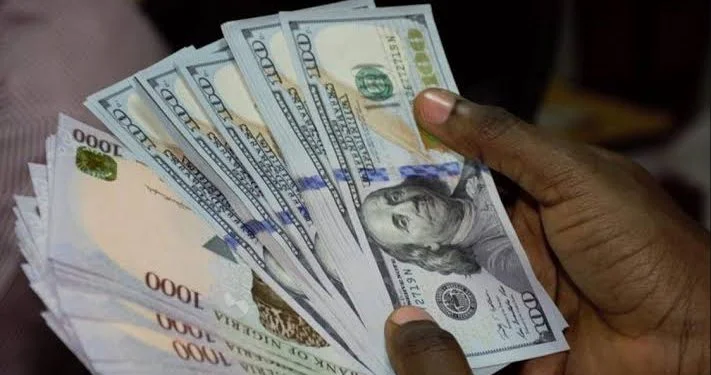In early 2022, Nigeria’s foreign exchange market faced mounting challenges, with the Association of Bureaux De Change Operators of Nigeria (ABCON) highlighting the growing gap between official and parallel market exchange rates. This disparity, driven by an acute shortage of dollars, stemmed from the Central Bank of Nigeria (CBN)’s decision to suspend foreign exchange sales to Bureaux De Change (BDC) operators. The policy, implemented in July 2021, has deepened economic distortions, exacerbating the naira’s devaluation and threatening Nigeria’s economic stability.
Rising Exchange Rate Disparity
According to ABCON’s Quarterly Economic Review for the first quarter of 2022, the premium between the official and parallel market exchange rates widened significantly. By the end of March 2022, the gap reached N171.83 per dollar, up from N106.33 per dollar on July 28, 2021, just before the CBN halted dollar sales to BDCs. This growing premium reflects the acute dollar scarcity in the retail foreign exchange market, as BDCs, once key players in meeting small-scale currency demands, were sidelined.
ABCON emphasized that this disparity is a symptom of deeper issues, stating, “A premium is the outcome of market restrictions that drive non-official supply and demand for foreign currency.” The association pointed to inconsistent fiscal and monetary policies as key drivers of this trend, undermining the credibility of Nigeria’s exchange rate framework despite the country’s foreign reserves.
Economic Distortions from Multiple Exchange Rates
The existence of multiple exchange rates has created significant distortions in Nigeria’s economy. According to ABCON, these rates manipulate relative prices, fostering opportunities for rent-seeking behavior among banks and intermediaries with access to lower official rates. This practice disadvantages legitimate businesses and consumers who rely on the parallel market, where rates are significantly higher. Correcting these multiple rates, ABCON argued, would enable market-driven pricing to allocate resources more efficiently, stabilizing the economy.
The suspension of BDC operations has further strained access to foreign currency for small-scale transactions, pushing demand to the parallel market. This shift has fueled volatility and widened the exchange rate gap, making it harder for Nigerians to afford imported goods and services.
Historical Context of Naira Devaluation
The naira’s struggles are not new. Nigeria’s economic challenges can be traced back to the adoption of the International Monetary Fund (IMF)’s Structural Adjustment Programme during the 1980s under the Babangida administration. At the time, international agencies attributed Nigeria’s economic woes—falling oil prices, unserviced debt, and restricted trade credit—to an overvalued naira. The subsequent devaluation set the stage for long-term economic difficulties, transforming Nigeria from a potential industrial powerhouse to an economy grappling with instability.
Calls for Policy Reform
ABCON urged the federal government to address the structural issues plaguing the economy, including its heavy reliance on debt to drive growth. The association warned that unchecked borrowing, coupled with rising poverty levels, could further destabilize the nation. By reconsidering its debt-dependent strategy, the government could alleviate some of the pressures exacerbating dollar scarcity and exchange rate volatility.
The association also called for a review of the CBN’s BDC suspension, arguing that restoring foreign exchange access to BDCs could help stabilize the retail forex market. Such a move, ABCON suggested, would reduce the parallel market premium and curb speculative activities that harm the naira.
Path Forward for Nigeria’s Economy
The challenges highlighted by ABCON underscore the need for cohesive fiscal and monetary policies to restore confidence in Nigeria’s foreign exchange market. Addressing the dollar scarcity and narrowing the exchange rate gap will require strategic interventions, including revisiting the role of BDCs in ensuring liquidity for retail transactions. As Nigeria grapples with these issues, policymakers face the critical task of balancing short-term stability with long-term economic reforms.






